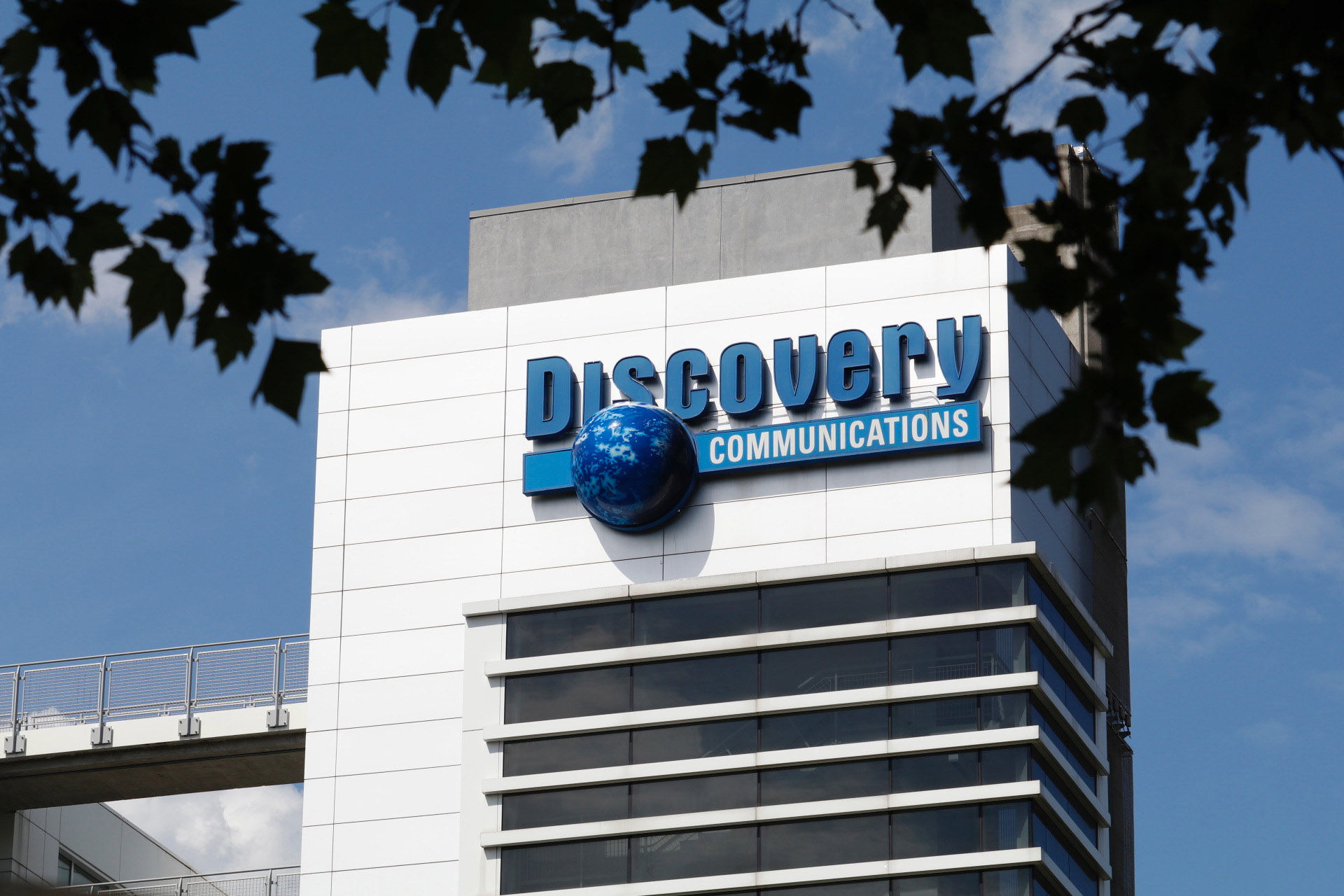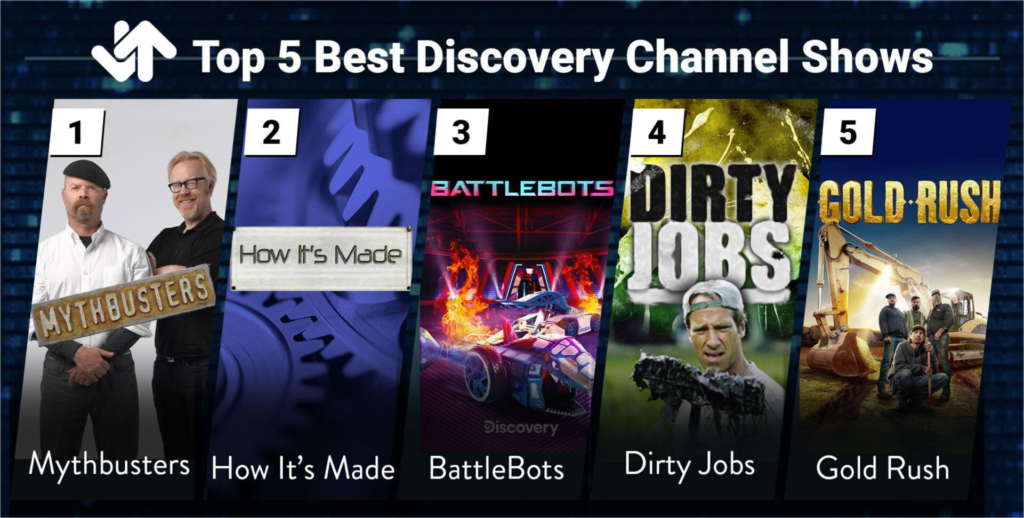WHAT THE HELL HAPPENED TO DISCOVERY CHANNEL?

The Discovery Channel, once a beacon of knowledge and education, has undergone a significant shift in its programming in recent years. For decades, the channel was known for its informative and educational programming about science, technology, and the natural world. Shows like “Mythbusters,” “How It’s Made,” and “Planet Earth” not only entertained audiences but also educated them on a wide range of subjects. For many viewers, the Discovery Channel was a trusted source of information and a window into the world of science and technology.
The old Discovery Channel was known for its informative and educational programming about science, technology, and the natural world. Some of the channel’s most popular and critically acclaimed shows from this era include:

“Mythbusters”: This popular science entertainment show, which aired from 2003 to 2016, featured a team of experts who attempted to debunk or confirm urban legends, old wives’ tales, and other myths using scientific methods.
“How It’s Made”: This show, which first aired in 2001, went behind the scenes to show viewers how a wide range of everyday products are made, from automobiles to chocolate.
“Planet Earth”: This groundbreaking nature documentary series, which first aired in 2006, featured stunning footage of wildlife and landscapes from around the world, accompanied by informative narration.
“Dirty Jobs”: This show, which aired from 2005 to 2012, followed host Mike Rowe as he worked in a variety of dirty and dangerous occupations, such as coal miner, alligator farmer, and sewage treatment plant operator.
“Deadliest Catch”: This reality show, which premiered in 2005, followed the lives of crab fishermen in the Bering Sea. It showed the dangerous and harsh conditions of the job and the sacrifices the fishermen have to make.
These shows helped establish the channel’s reputation as a reputable source of educational content, and many of them enjoyed long runs and have become cult classics. They were informative, engaging and entertaining, and helped viewers learn about a wide range of subjects, from the science behind urban legends to the intricacies of manufacturing.
However, in recent years, the channel has shifted its focus to reality programming. Shows like “Gold Rush,” “Deadliest Catch,” and “Swamp People” have become some of the channel’s most popular programs. These shows feature real people engaged in unconventional and often dangerous occupations and lifestyles. While these shows may be entertaining, they do not offer the same level of education and information as the channel’s previous programming.
For many viewers, this shift in programming has been met with disappointment and a sense of betrayal. They feel that the channel has abandoned its educational mission in favor of more sensational and less informative programming. They remember how the channel used to be a reliable source of knowledge, and now it feels like they are being presented with a reality show rather than a science or nature program. There is no denying that reality programming has been successful in terms of ratings. Shows like “Gold Rush” and “Swamp People” have become some of the highest-rated programs on the channel. But this success has come at a cost. The channel’s reputation as a reputable source of educational content has been damaged, and some viewers feel that the channel has betrayed its core mission.
It’s important to note that the channel hasn’t completely abandoned its educational programming, there are still science and nature shows and documentaries, but they are not as prominent as they were before.
The channel’s shift in programming has also been met with criticism from experts in various fields. They argue that the channel has a responsibility to provide accurate and reliable information to viewers, and that the reality shows do not meet that standard. They also point out that the channel’s focus on reality programming is a missed opportunity to educate and inform audiences on important subjects. The channel hasn’t completely abandoned its educational programming, there are still science and nature shows and documentaries, but they are not as prominent as they were before. This has led to mixed emotions among the viewers, some are still loyal and watch the channel, but others have lost interest and moved on.
The channel has also been criticized for airing shows that are not entirely based on facts or reality, thus misleading the audience. This has led to a loss of trust among the audience, and some have questioned the credibility of the channel.
In conclusion, the Discovery Channel has undergone a significant shift in its programming in recent years, moving away from its traditional focus on science, technology, and the natural world towards more reality-based
programming. This shift has been met with mixed reactions from viewers and critics. While the reality shows have been successful in terms of ratings, they have also been criticized for abandoning the channel’s educational mission and for providing misleading information. For many viewers, the Discovery Channel was a trusted source of knowledge and education, and the shift in programming has led to a sense of disappointment and betrayal. They feel that the channel has abandoned its core mission and has become too focused on entertainment at the expense of education. Experts have also criticized the channel for failing to provide accurate and reliable information to viewers.
It’s important for channels like Discovery to find a balance between entertaining programming and informative content. While the channel has not completely abandoned its educational programming, it’s not as prominent as it used to be and it’s not enough to satisfy the audience who were loyal to the channel for the educational aspect. The channel has an opportunity to educate and inform audiences in a way that is both engaging and entertaining, it’s important for the channel to remember its initial mission, and not to completely abandon it. The channel also needs to be transparent and honest with its audience, misleading them or not providing accurate information will cause a loss of trust among the audience. The channel should strive to maintain its reputation as a reputable source of educational content while also appealing to a broad audience.
In summary, the Discovery Channel’s shift in programming has been successful in terms of ratings, but it has also been met with significant criticism for betraying the channel’s educational mission. The channel needs to find a balance between entertaining programming and informative content.





